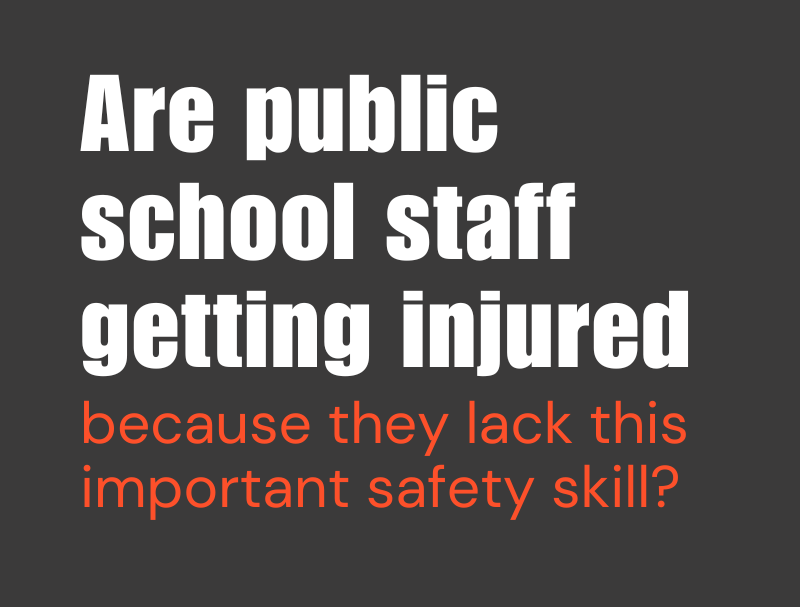Protecting staff from harm is a paramount responsibility.
Yet, a key factor often overlooked in safety training is SITUATIONAL AWARENESS – a learnable skill that can significantly mitigate the risk of injury and create a safer environment for everyone.
Situational awareness empowers staff to proactively recognize potential dangers.
This includes understanding and identifying:
1 Early Warning Signs of Escalation: Being attuned to heightened student emotions, changes in behavior, body language, and tone. Recognizing these subtle cues allows for timely intervention, potentially preventing conflicts before they arise.
2 Environmental Factors Contributing to Risk: Noting the physical layout of the room, including potential obstacles and objects that could be used as weapons. This also involves being aware (whenever possible) of a student’s history of aggression, such as hitting, kicking, pinching, biting, or using weapons, and their tendency to attack with little or no warning, as this informs potential environmental risks.
3 Personal Positioning and Vulnerability: Understanding and avoiding risky positions when interacting with students, particularly those with a history of aggression. Maintaining safe distance and positioning to minimize vulnerability is crucial for preventing injury.
4 Escalating Situations and Safe Disengagement: Recognizing when a student is becoming agitated and knowing how to safely disengage or reposition oneself to avoid potential harm is a critical component of staff safety.
Implementing situational awareness training across your school district isn’t just a safety measure—it’s a strategic investment.
When staff develop this critical skill, injury rates can decline and overall school climate can improve.
